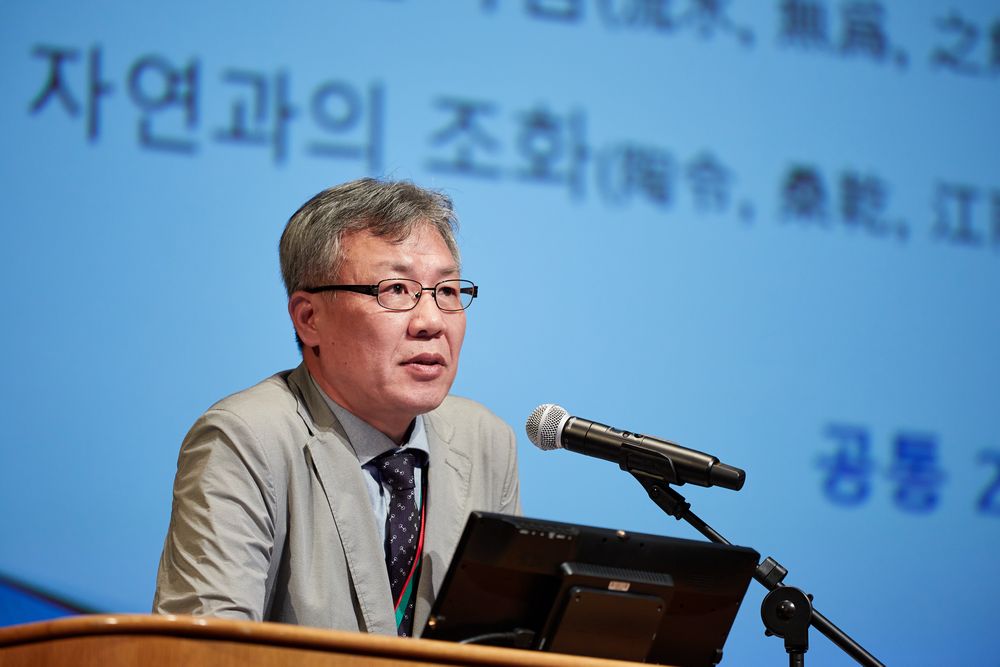The 42nd NIHU Symposium “Pioneering the Future of the Humanities Through Digital Humanities”

The National Institutes for the Humanities (NIHU) coordinates with universities and various research institutes to host the NIHU Symposium every fiscal year, themed around the latest research results in the humanities. The 42nd event was held on July 27, 2024, under the theme “Pioneering the Future of the Humanities Through Digital Humanities,” both at the conference venue and through live streaming. The footage recorded on the day is available on NIHU’s YouTube channel.
The 42nd NIHU Symposium
“Pioneering the Future of the Humanities Through Digital Humanities”
Digital Humanities (DH) is the application of digital technologies, derived from information science, to the humanities. NIHU places priority on the promotion of digital humanities, which NIHU views as a totality of venues where scholars of different fields co-create new research fields, as well as the foundation on which to create knowledge for the next generation.
The symposium was hosted by utilizing the researcher network of the Consortium for Global Japanese Studies. The event opened with a presentation on the current situation in South Korea, a pioneer in the digital humanities field. Following this were reports from scholars affiliated with the NIHU institutes, member research institutes of the Consortium, and universities with which the International Research Center for Japanese Studies has signed an Agreement for Academic Exchange and Cooperation. Capping off the event was a roundtable discussion. The theme of the symposium revolved around collaborations and technological innovations that harness the characteristics of digital environments to transcend organizational, national, regional, and disciplinary boundaries. The organizers hope the event offered participants an intellectually stimulating experience, opening up new frontiers in the generally familiar fields of the humanities through digital technology.
Following the overview of the event’s purpose were presentations by three scholars in the first half of the symposium. First, Kim Joonyoun, a professor at Korea University, described DH as a new methodology in the humanities. He also explained how he teaches courses in digital humanities and shared his observations of DH at U.S. universities and libraries. This was followed by examples of the way he uses DH in his research on Chinese poetry.

Next, NAGAI Masakatsu, a project professor at NIHU, introduced NIHU’s office for the promotion of DH and categories of DH. He discussed the development of databases and open data for research on ancient Egyptian scripts (hieroglyphs), which is his specialty.

The final presenter, Harald Kümmerle, a principal researcher at the German Institute for Japanese Studies, explained epistemic virtues and values, as well as TANAKA Tadao’s theory on duality in the context of his research subject, the history of mathematics in Japan.

The second half of the symposium was a panel discussion moderated by Professor SEKINO Tatsuki. In addition to taking questions and comments from the audience both at the venue and online, the speakers exchanged views about issues on data disclosure and user literacy, the utilization of AI, its impact on the humanities, and its role as a tool or a player.

The affiliation and position of speakers are based on information as of July 2024.
Text: OHBA Go, Research Fellow, the Center for Innovative Research, the National Institutes for the Humanities
